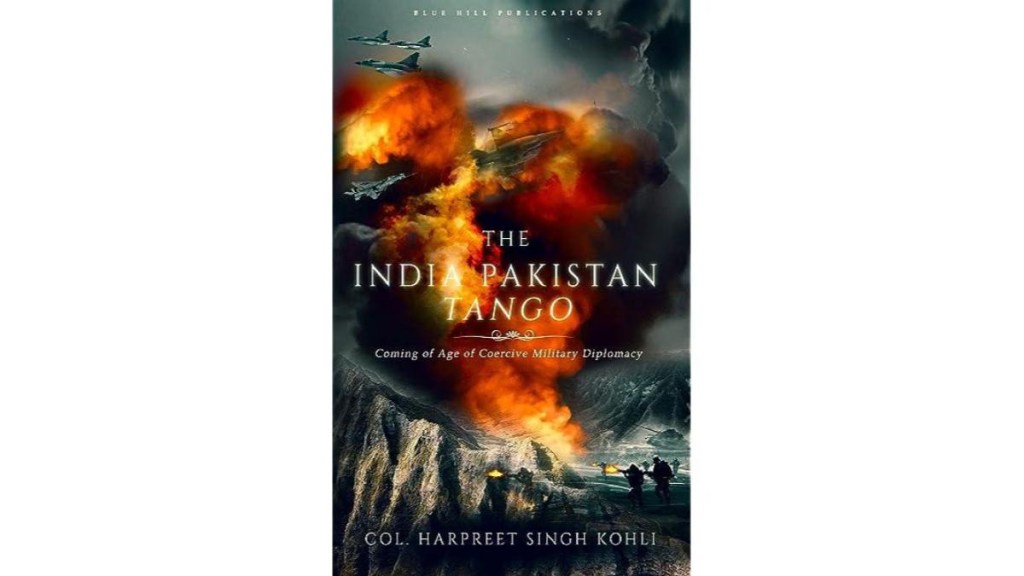By Maj Gen (Dr) Ashok Kumar, VSM(R)
It was a matter of chance when one got hospitalised in the month of June 23. There was a lot of time in the process where one was inclined to go through certain books which get missed out due to routine rush and commitments. It was in this backdrop that I chanced upon a captivating book. ‘The India Pakistan Tango’ written by an Army officer Colonel Harpreet Singh Kohli. The book became more interesting as events of May 9, 2023 had shook the entire Pakistan nation when Imran Khan, the ex Prime Minister of Pakistan was arrested which was followed by large scale violence and demonstrations. It was for the first time that houses of even senior Army officers were ransacked which shook the credibility of Pakistani Army, one of the most important pillars of Pakistan polity.
This book written by this Army officer has been published by Blue Hill Publications Private Limited in 2021 and has been drawing attention of the readers close to two years by now.
The book has 12 chapters including the last being the ‘Concluding Notes’. The size of the book consists merely 135 pages and is even suited for those whose attention span is short.
The book predominantly traces the emergence of the Indian nation for having the military capability as well as the political will to execute military decisions against all its adversaries ‘in general’ and Pakistan ‘in particular’.
Surprisingly and rightly so, the emergence of Indian nation has been traced back to Indian Army’s transborder operations in Myanmar for responding to the deaths of 18 soldiers of the Dogra regiment who were ambushed in Chandel District of Manipur in the North East region in the ‘Preface’ of the book itself.The officer has started the first Chapter on defining the ‘coercive Diplomacy’ as is relevant in the context of this book.
The Chapter 2 is the briefest chapter in the book consisting of merely four pages wherein the writer highlights the necessity of India re-tweaking its strategy as the current model of proxy war by Pakistan was ‘Advantage Pakistan’ on cost benefit analysis spectrum.
The Chapter 3 is devoted to the strong Indian response by BSF in the Year 2014 in response to Pakistani Rangers where higher casualties were caused by the BSF while targeting the Pakistani Rangers. This has been attributed to the free hand given to BSF probably at the highest level possible.
The Chapter 4 is devoted to multiple terror attacks attempted/conducted by Pakistan. This has been considered ‘the intervening period’ by the author before the launch of a ground surgical strike by the Indian Army whose details have been covered in Chapter 5 with reasonable details to make the readers aware of this much talked about event.
In the next chapter, the author covers the details related to Pulwama attack which resulted in Balakot airstrike against Pakistan details of which have been covered in next Chapter No 7.
The officer has done reasonable justice to the next three chapters to look at Pakistan’s response,its information warfare campaign and subtle leveraging of its nuclear capability. It has clearly emerged that there is a definite space for conventional operations even when both India and Pakistan are nuclear states.
As against only remaining descriptive about the events from Indian and Pakistani perspective, the last two chapters of this book are most important wherein ‘one’ has been devoted to ‘crystal gazing’ throwing valuable lessons for all stakeholders whereas the last chapter has done justice to include the ‘Concluding Notes’ so that those having lesser time can also look at this book for a good reading.
In nutshell, a well crafted book by an Army officer which brings ‘services perspective’ to a reasonable extent as Indian Defence Forces continue to be an ‘apolitical’ organisation. where in the young generation must include this as a ‘must read’ book. Priced at Rs 299 – its value for money.
The author is a Kargil war veteran And Senior Fellow of CLAWS, an Indian Army Think Tank.
Disclaimer: Views expressed are personal and do not reflect the official position or policy of Financial Express Online. Reproducing this content without permission is prohibited.

